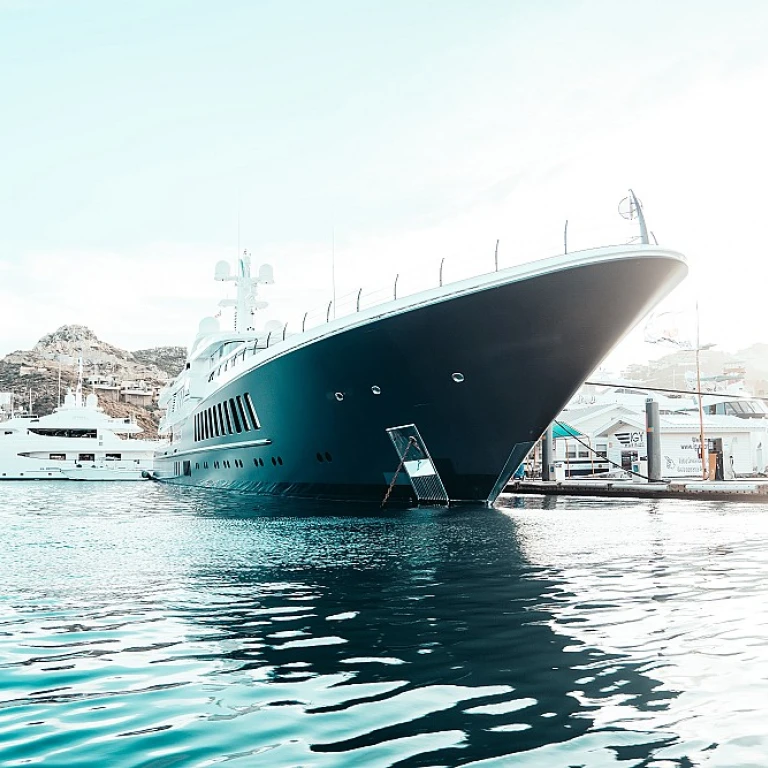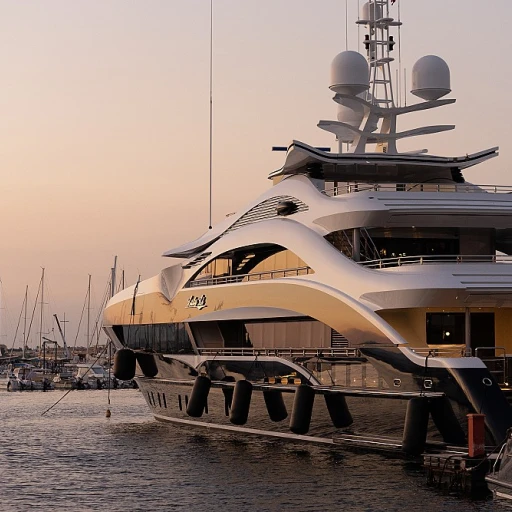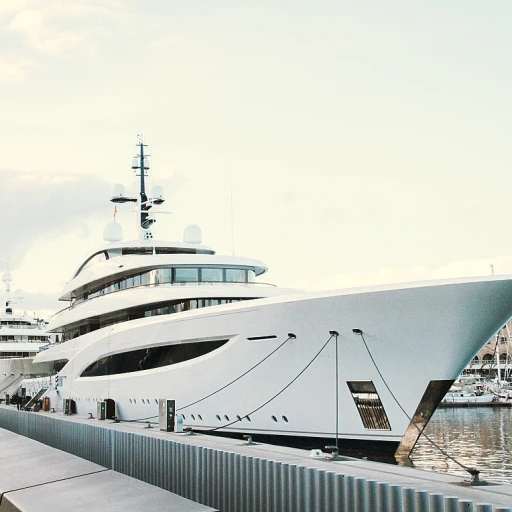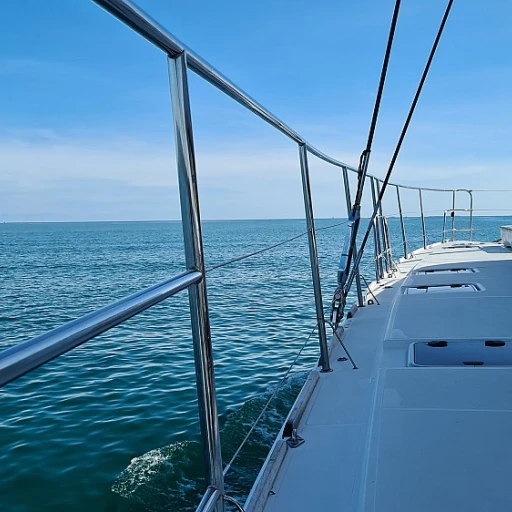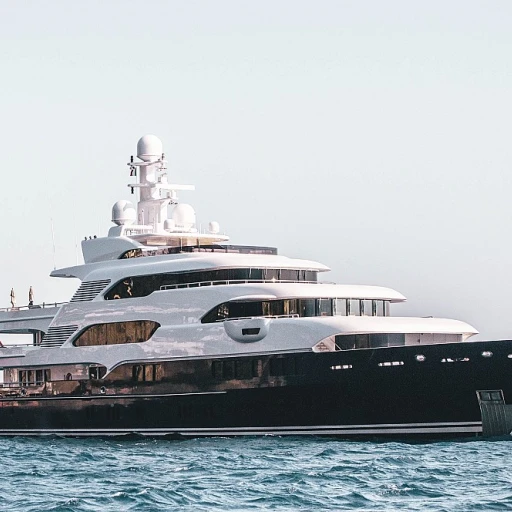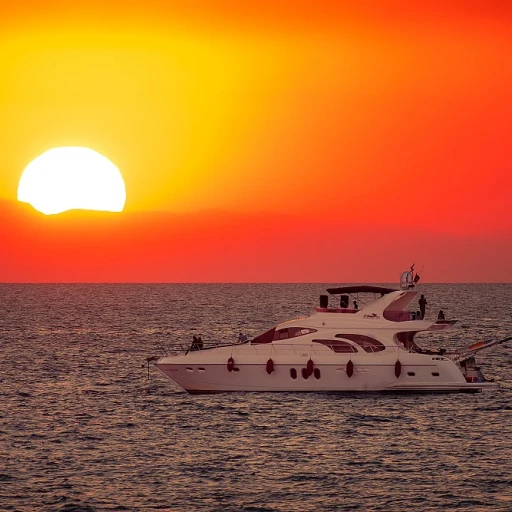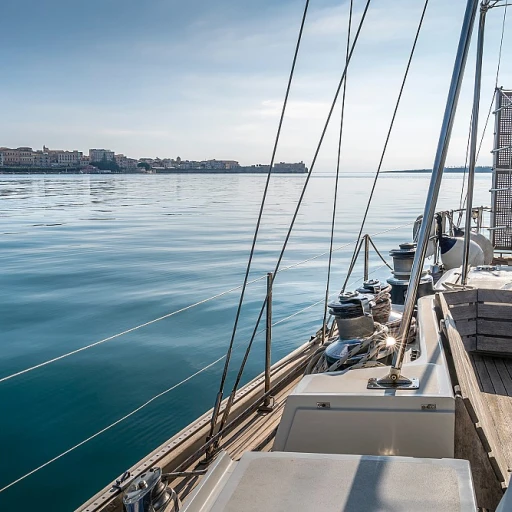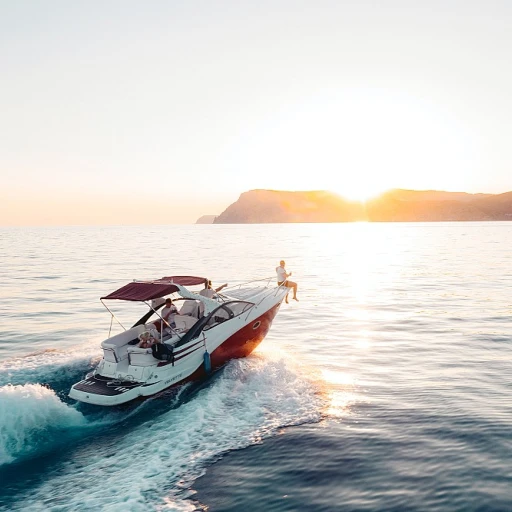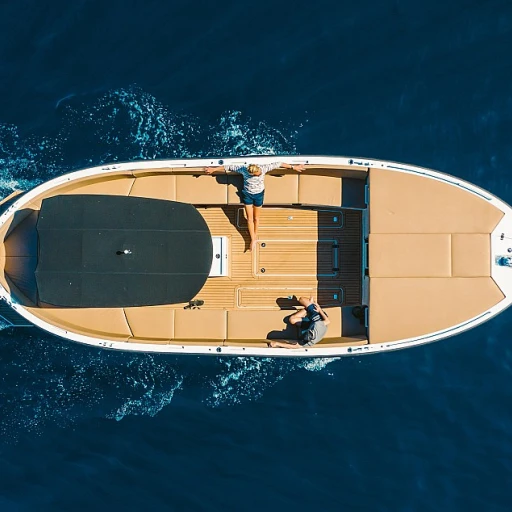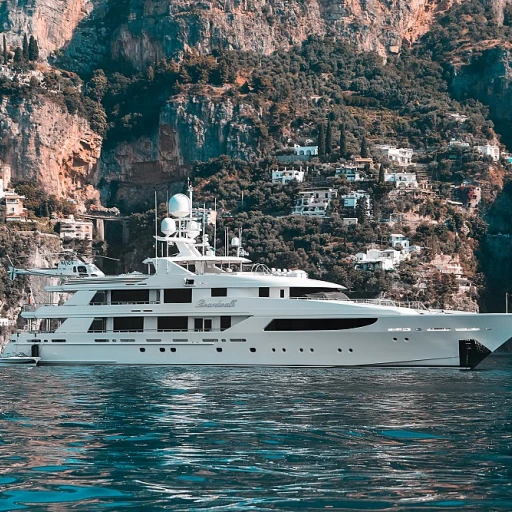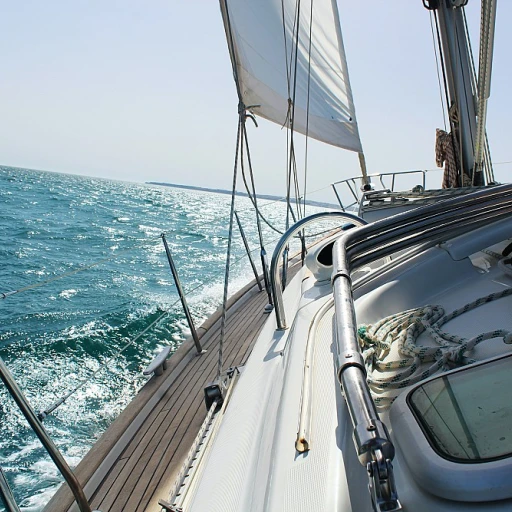
The Importance of Water Quality on Yachts
Why Water Quality Matters at Sea
Ensuring high water quality is essential for a comfortable yachting experience. Having reliable access to fresh water on board is crucial, especially when you're miles away from the nearest shore. But what exactly determines good quality water on a yacht? The quality of water on yachts can significantly impact both comfort and health. Onboard systems must convert sea water into drinkable fresh water efficiently. Here, the role of a water maker takes center stage. These systems utilize reverse osmosis to remove total dissolved solids (TDS) from seawater, transforming it into potable quality water. A high pressure pump drives seawater through a series of membranes, filtering out impurities and ensuring the water you consume is safe and pleasant to drink. This is where TDS readings come into play. A TDS meter measures the concentration of dissolved solids in water, giving a clear indication of the water's purity. For yacht owners and operators, monitoring water quality using TDS water makers and regularly checking TDS readings is crucial. Ensuring high standards of water quality isn't just about comfort; it's a matter of safety. Using watermakers, specifically those designed to handle high pressure osmosis systems, is essential for providing fresh water consistently during your journey. Additionally, considering the right stops for refueling can support maintaining these high standards best stops for refueling your yacht. By prioritizing quality, yachts can transform the simple act of using water into a seamless aspect of luxury. These water purification systems are essential products on any modern yacht, providing limitless opportunities for adventures without compromising on the necessity of fresh water supply. Understanding the significance of water quality also lays the foundation for exploring specific system components, like the filter membranes and pressure pump that support the production of quality product water. This, combined with a routine maintenance schedule, ensures your yachting experience remains both enjoyable and worry-free.What is a TDS Water Maker?
Delving Into TDS Water Makers: The Backbone of Onboard Purification
In the realm of yachting, ensuring access to quality water, particularly fresh water, is paramount. But what exactly is a Total Dissolved Solids (TDS) water maker and how does it function within the spectrum of water purification on a yacht?
A TDS water maker essentially employs a sophisticated system, usually reverse osmosis, to convert sea water into drinkable fresh water. Utilizing high pressure, the water maker's pump system forces sea water through semi-permeable membranes. Here, dissolved solids and impurities are separated effectively, resulting in what is known as product water. This process reduces the parts per million (ppm) of total dissolved solids, refining the water quality significantly for safe use.
The core components of these systems include a pressure pump and membranes, which are critical for achieving high-quality water filtering. A tds meter often assists in monitoring the TDS readings, providing insights into the water's purity levels and ensuring consistent water quality.
For yacht owners, understanding the specifications, often detailed in a spec sheet, is vital when evaluating the performance and compatibility of a TDS water maker. This aligns well with the broader objective of maintaining an adequate supply of fresh, drinkable water for all onboard activities.
Given the essential role that these watermakers play in enhancing the aquatic experience, taking time to read and comprehend their functionalities becomes indispensable. As yachts traverse varied water bodies, these systems guarantee that high standards of water purity are sustained, reflecting a commitment to excellence and safety on the water.
Furthermore, for an effective system operation, regular maintenance of the boost pump and filters is imperative. These components ensure that the system’s high pressure demands are met, allowing water will flow smoothly, mitigating any potential disruptions in the water supply.
For additional insights on effective yacht anchoring methods which can influence onboard water management, consider exploring anchoring techniques for your yacht.
Benefits of Using TDS Water Makers on Yachts
Advantages of Employing TDS Water Makers on Yachts
A Total Dissolved Solids (TDS) water maker is a game changer for yacht owners, revolutionizing the way fresh water is available on board. With yacht enthusiasts placing a premium on luxury and convenience, these systems ensure that essential resources are always within reach. One key benefit of deploying a TDS water maker is the ability to convert sea water into high-quality fresh water. Utilizing a sophisticated osmosis system, these water makers effectively remove dissolved solids, ensuring the water produced meets your desired quality standards. Equipped with a high pressure pump and a series of membranes, the system filters out impurities, making it safe to drink. Furthermore, the inclusion of a TDS meter allows yacht owners to constantly monitor water quality, providing peace of mind that the fresh water produced is up to standard. High-quality water is vital for both practical needs and enriching the cruising experience. These systems also augment the total water capacity on your boat. By reducing dependence on dockside fresh water supplies, they offer greater freedom to explore remote areas without sacrificing comfort or hygiene. Additionally, TDS water makers help manage the space and weight issues aboard yachts by eliminating the need to carry large amounts of bottled or tanked water. For yacht owners who love cooking gourmet meals, having a reliable source of fresh and clean water makes a world of difference, and the integration of features such as this complements other luxury aids like premium boat grills. Overall, TDS water makers not only enhance comfort but also contribute to the sustainability and operational efficiency of the yacht. Their ability to deliver fresh drinking water with the right specifications and TDS readings, while managing the total dissolved solids in the product water, is unmatched. Such innovations are vital in modern yachting, synergizing with the emerging trends in yacht water purification technology.Choosing the Right TDS Water Maker for Your Yacht
Factors to Consider When Selecting a TDS Water Maker
Choosing the right TDS water maker for your yacht is crucial to ensuring consistent water quality and optimizing the onboard experience. Here's a guide to help you navigate this important decision:- Water Production Capacity: Evaluate the amount of fresh water your boat needs on a daily basis. Opt for a TDS water maker with a production rate that meets or exceeds your yacht's requirements. A spec sheet will often list the capacity in gallons per day (GPD).
- Energy Consumption: Consider the power requirements of the system. Efficient energy use is important, especially when balancing between onboard resources and performance. Check if the water maker complements the power sources available on your yacht.
- Pump and Pressure System: The effectiveness of a water maker largely depends on its pump and pressure capabilities. A high pressure pump is essential for optimal functioning of the reverse osmosis system, which effectively separates total dissolved solids in sea water to produce quality water.
- Membrane Quality: The membrane determines the system's ability to purify water. High-quality membranes ensure lower maintenance and longer lifespan, critical for maintaining fresh water flow.
- TDS Meter Integration: Ensure that your watermaker includes a TDS meter to monitor water quality in real-time. TDS readings in parts per million (ppm) give insight into the levels of dissolved solids in product water, ensuring safe drinking water.
- Ease of Installation and Maintenance: Some watermakers are more user-friendly and require less time for installation and maintenance. Consider models that offer straightforward designs with easy access to components like the filter, pressure pump, and membranes.
- Price and Other Specifications: Evaluate the cost together with the features of the product. While cost is a factor, weigh it against the benefits such as energy efficiency, product durability, and water production rate. Read through product reviews and possibly consult with other yacht owners for recommendations.
Maintenance Tips for TDS Water Makers
Ensuring Optimal Performance with Regular Servicing
Maintaining a TDS water maker is essential for ensuring that the system consistently provides high-quality water for your yacht. A well-maintained water maker will produce fresh water with low total dissolved solids (TDS) levels, ensuring the water is safe for drinking and other onboard uses. Here are some key maintenance tips to help you keep your water maker in top condition.- Regular Inspection: Periodically inspect your water maker to ensure that all components, such as the membranes, pressure pump, and filters, are functioning properly. Check for any signs of wear or damage that might impact the system's performance.
- Membrane Care: The membrane is a crucial part of the reverse osmosis system, as it is responsible for filtering and removing dissolved solids from the sea water. Regularly check the membrane’s condition and replace it if necessary to maintain optimal water quality.
- Monitor TDS Levels: Use a TDS meter to regularly monitor the quality of the product water. By keeping track of TDS readings, you can ensure that the system is working efficiently and producing quality water.
- Pressure Pump Maintenance: Ensure the high-pressure and boost pumps are operating correctly. These pumps are vital for the system's operation, as they maintain the necessary pressure levels for the filtration process.
- Filter Replacement: Regularly replace all pre-filters according to the manufacturer's guidelines. Filters play a significant role in preventing particulate matter from reaching the membrane, thus maintaining overall system health.
- Reference the Spec Sheet: Always keep the manufacturer's spec sheet on hand, which contains valuable information on maintenance schedules, recommended replacement parts, and troubleshooting tips.

